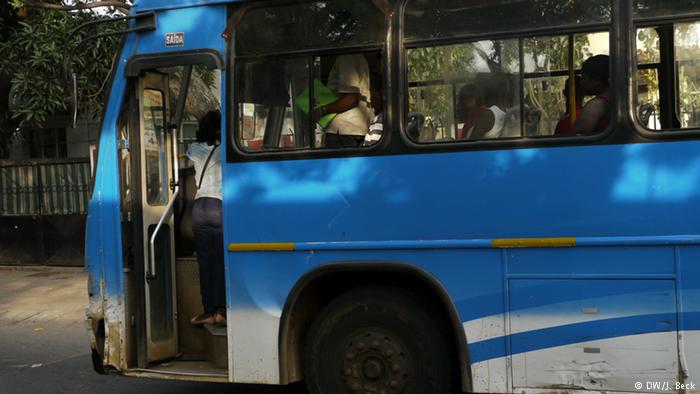BCI joins Mozambique Gas & Energy Summit
Transport in Mozambique on the verge of collapse

DW (File photo) / Illustrative picture: Buses in Maputo
Carriers accumulate losses due to escalating operating costs and tariffs that haven’t risen in nine years. Residents of Maputo and Matola complain, while the government maintains that improving the economy will solve the problem.
Carriers in Maputo and Matola are outraged at the government because the fares for semi-collective passenger transport has not risen in nine years. The government only subsidizes fuel, and not the vehicle parts that are now more expensive because of the depreciation of the metical against the rand and the dollar.
Transporters report that operating costs have skyrocketed and are now unsustainable.
Residents’ complaints
The cities of Maputo and Matola are already feeling the impact of the lack of transportation. Commuters are transported in trucks that do not meet safety conditions. Among the complaints from residents who spoke to DW Africa is the need to get up early to have any form of transport. Another resident complains that “You can wait one hour, two hours” for transport.
In 2008, the last time there was an increase in the transportation tariff, the public in the two cities took to the streets in protest against the measure.
Since then, according to Alexandre Ngovene of the Federation of Road Transport (FEMATRO) the sector has only accumulated losses.
“The tire that I bought at three thousand meticais [EUR 60], today costs seven thousand meticals [EUR 100], but I continue to charge the lowest price.”
Chronic situation
The situation makes the business unsustainable, because, according to businessman Luís Pedro, the import taxes on passenger vehicles are higher.
“If they could, as far as possible, influence that as soon as all the conditions have been met, they will lower interest rates because there is no investment that will resist 30 percent of interest rates and the devaluation of the metical. The real interest rate at this moment is extremely high,” he argues.
In turn, the administrator of the Matola Municipal Transport Company, Eduardo Mussengue notes that in 2014 he had 75 buses but now only 10 are in operation. The lack of parts is a “chronic situation”. “Either because there are no parts in the market or because we do not have the money for the purpose. The Ministry of Transport is working on the issue to avoid there being so many (bus) brands in the company.”
The government has only required carriers not to shorten the routes in order to merit support. The Minister of Economy and Finance argues that with the recovery of the national economy will solve the problem.
“The thinking is now to look at how we produce. It is only with through production that we can move forward. Everything else we may solve, but without production it is impossible. So all the issues are more oriented to that perspective.”












Leave a Reply
Be the First to Comment!
You must be logged in to post a comment.
You must be logged in to post a comment.